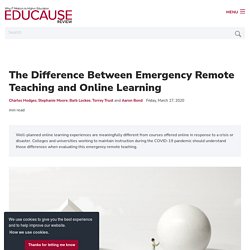

Narratives & Storytelling. Podcasting. Do Laws That Ban Offensive Words Make the World a Better Place? Lawmakers in South Africa want to make hate speech a crime.

Backers of the draft law say racist language can violate human rights and is not compatible with the nation’s values. Opponents say that criminalizing hate speech will erode freedom of expression and do little to heal the country’s racial wounds. Do laws that ban offensive words make the world a better place? In “Jail Time for Using South Africa’s Worst Racial Slur?” Norimitsu Onishi writes: JOHANNESBURG — After thieves broke into her car, a white South African motorist lashed out at the responding black police officers. Students: Read the entire article, then tell us: — Do laws that ban offensive words make the world a better place? — Or, should the right to free speech trump our desire to end the use of hateful words? — South Africans aren’t the only ones who have considered banning an offensive word.
. — Which do you think is more effective in combating offensive language: government censorship or public education, or both? Project Audio: Teaching Students How to Produce Their Own Podcasts. Invisibilia: Episode 1: Dark Thoughts (Segment: 0:00 - 2:40) The Daily: Fired Over an Instagram Post (Segment: 0:00 - 3:45) StoryCorps: Gregory Bess and April Gibson (Segment: 0:00 - 2:36) For “The Daily” episode, students might notice that the interview questions are sometimes edited out — so the listener just hears the interviewee’s responses. Students might even guess what the missing questions were. Then regroup as a class. What interviewing techniques did you hear? Which ones do you think are the most essential to good interviewing? Mini-Lesson: Using a Smartphone to Record Until now, we‘ve focused on the nontechnical aspects of podcasting, but to move forward we’ll need to make sure the class knows how to use recording devices.
. • First, smartphones will need to have a sound recording app. ElementsTechniquesEffectiveStorytellingLN. Over 1,000 Writing Prompts for Students. Sign up for our free Learning Network newsletter. Receive new writing prompts in your inbox every week.
Of all the resources we publish on The Learning Network, perhaps it’s our vast collection of writing prompts that is our most widely used resource for teaching and learning with The Times. We’ve published iterations of this post in the past — 200, 401 and even 650 prompts — but never before have we gathered all our prompts, for both personal and argument writing, into one categorized list. Admittedly, the list is huge. In fact, there are 1,225 questions below on everything from video games and fashion to smartphones and parenting, and each prompt links to a Times article as well as to additional subquestions that can encourage deeper thinking.
Guns & the Justice System 1,147. Government Policy. Project Audio: Teaching Students How to Produce Their Own Podcasts. The Difference Between Emergency Remote Teaching and Online Learning. Well-planned online learning experiences are meaningfully different from courses offered online in response to a crisis or disaster.

Colleges and universities working to maintain instruction during the COVID-19 pandemic should understand those differences when evaluating this emergency remote teaching. Due to the threat of COVID-19, colleges and universities are facing decisions about how to continue teaching and learning while keeping their faculty, staff, and students safe from a public health emergency that is moving fast and not well understood. Many institutions have opted to cancel all face-to-face classes, including labs and other learning experiences, and have mandated that faculty move their courses online to help prevent the spread of the virus that causes COVID-19.
The list of institutions of higher education making this decision has been growing each day. The temptation to compare online learning to face-to-face instruction in these circumstances will be great. Don't 'just Google it': 3 ways students can get the most from searching online. Searching online has many educational benefits.

For instance, one study found students who used advanced online search strategies also had higher grades at university. But spending more time online does not guarantee better online skills. Instead, a student’s ability to successfully search online increases with guidance and explicit instruction. Young people tend to assume they are already competent searchers.
Producing High Quality Media.pdf. QM Template User Guide Revised. Interaction - Teaching Online Pedagogical Repository. Online: Office Hours. Online: ACUE Online Toolkit. Graphics & Images - copyright & accessibility. Orientation & Scavenger Hunts. Online: Student Engagement Strategies. Case Studies (Assessments) Learning Outcomes & Course Development. Adult Learning. Large Classes - Teaching. MIT Open Courses. Visual Presentations. Online Teaching. Team Building & Ice Breakers. Evaluation and Assessment.
Jigsaw (Collab Learning) Chunking. Flipped Learning. Interactive Games in Digital Classroom. Etiquette in the Virtual Classroom. Academic Integrity. Music - License Free. Growth Mindset. BOPPPS. Copyright - Teaching - Fair Dealing. Preparing Students for Online Learning. Active Learning. Principles of Learning. Discussions - In-Class. Discussions - Online Boards. CAT: Classroom Assessment Techniques. Rubrics. Integrated Course Design. Syllabus Design. Classroom Culture. Accessibility & Universal Design. Best Practices for teaching 1st year students.